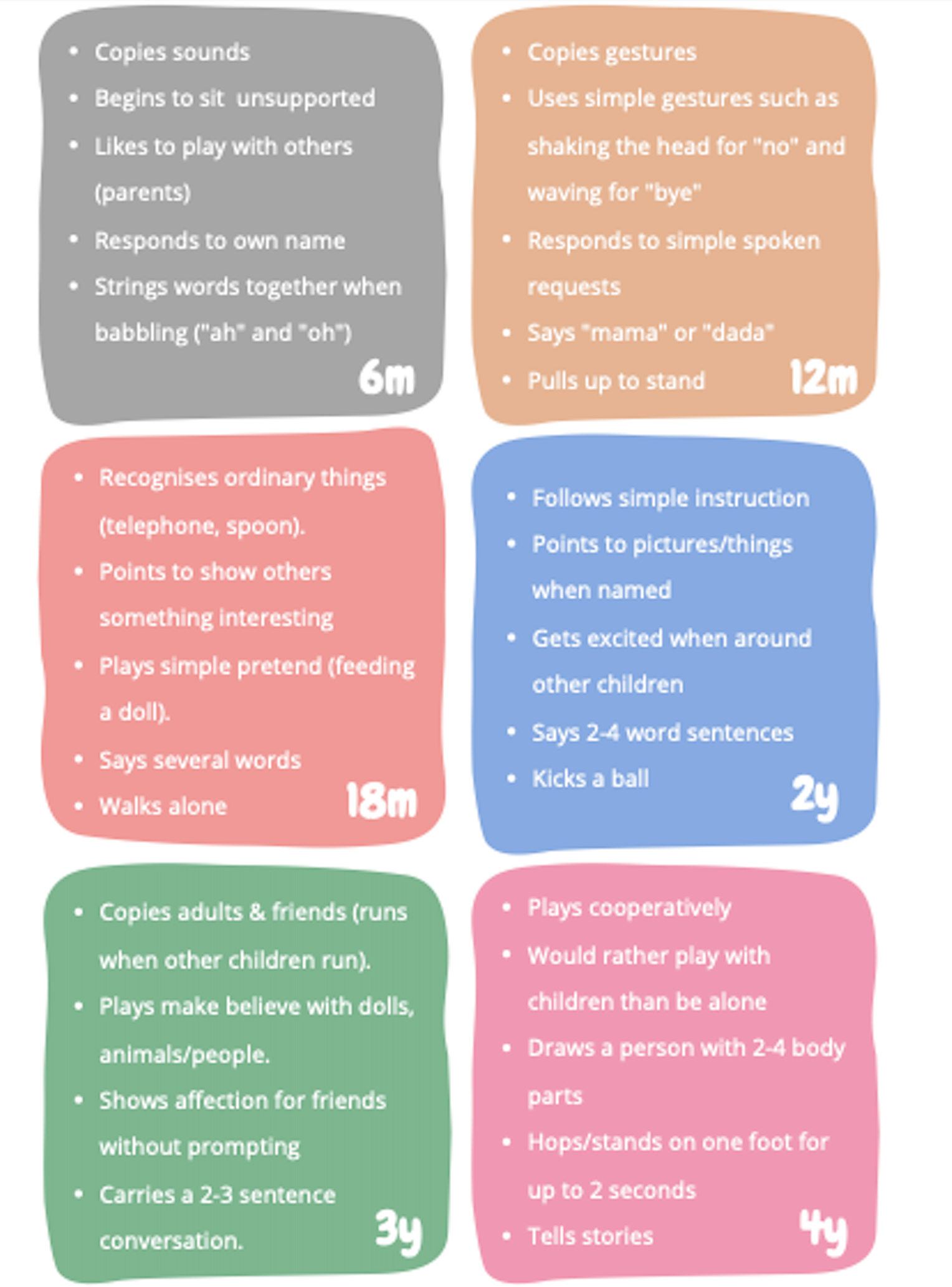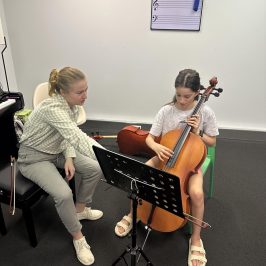by Dr Pooja Rastogi, GP at Hunters Hill Medical Practice
“A person is a person no matter how small” – Dr Seus
As exciting as parenting can be, it can be challenging, too. The joys of coos and cuddles is often mixed with the anxiety of managing new unknowns – the need for regular childhood checks, immunisations, their first cold or ear infection. To add to the confusion is the overabundance of advice from family, friends or conflicting information that you may read online. Talking to your GP throughout this period is so important – we are here to help you through the maze. Hopefully this guide sheds some light on the journey ahead.
Why does my child need regular childhood checks?
It is reported that 90% of your child’s brain development occurs before they turn five. These early days set the foundation for future growth and development. This is why it is important for your child to have regular health checks from birth. Childhood checks assist in identifying potential issues early, when they can be corrected, rather than waiting for problems to arise later in life, when they may be harder to fix. These checks are necessary even if you feel that your child is developing normally.
What is the blue book?
All parents of children born in NSW receive a free copy of the My Personal Health Record (Blue Book). The blue book contains valuable health information for parents and is a place to record your child’s health information, illnesses, injuries, immunisations, growth and development. It is recommended to take your blue book to childhood health checks with your GP from birth up until 4 years of age.
The blue book clearly highlights the timing of each of these childhood checks (birth, 6 weeks, 6 months, 12 months, 18 months, 2 years, 3 years and 4 years).
What is discussed at a childhood check?
The focus of each check, questions asked and the advice given to you by your GP will vary as your child develops. Points of discussion for you to consider are included below.
- Newborn Check (6 Week): The newborn check is arguably the most important (for both mum and baby). During this visit we discuss issues relating to feeding (breast and bottle), crying, settling and sleep. There are a number of excellent resources which can be shared with you (Australian Breast Feeding Association Guides, Mum2Mum App). It is recommended to book in for a long consultation to ensure all of your questions are adequately addressed.
- 4 & 6 Month Check: It is recommended to start solids when your child shows signs of being ready – around 6 months of age but not before 4 months. We assist with this transition by providing education on how to introduce solids and recognise the signs of readiness. Understanding which foods are nutritionally complete and safe is also important – the Solid Starts Database & App is another excellent resource. Your child may also begin to teeth and we can discuss strategies to relieve discomfort.
- 12, 18 & 24 Month Check: By 12 months your child is likely communicating in different ways (waving, pointing and trying to talk). They may even be standing or walking. We ensure everything is on track and provide information on recognising delay. By the age of 2, they may become more independent, develop unique personalities and show new emotions such as anger (a period infamously termed the “terrible twos”). We discuss techniques to help you through challenging behaviours, fussy eating and toilet training.
- Healthy Kids Check (4 Years): It is important for children to start school healthy and ready to learn. The healthy kids check is a comprehensive visit to ensure your child is ready to start school. We focus on checking growth/vision/hearing, addressing behavioural concerns and providing healthy lifestyle advice.
How do I know that my child is developing appropriately?
Milestones are benchmark achievements that are used to check how your child is developing emotionally, socially and physically. You can track your child’s development prior to each health check by answering the Learn The Signs, Act Early questions found in the blue book. These milestones are also reviewed with your GP at each check. We ask questions across several domains to identify any developmental concerns (social /emotional, cognitive, communication, fine motor/gross motor). A simplified summary of the age specific milestones to look out for are included below.

Remember that children develop at their own pace. Use these milestones as a rough guide only and do not compare. If you feel that your child is not meeting the milestones for their age, act early and share your concerns with your GP directly.
What is involved in a childhood exam?
At each childhood check, your GP will perform a head to toe examination. This includes measuring height, weight and head circumference. The measurements are plotted on growth charts which assist in monitoring development over time. It also allows for comparison of your child’s growth with children of the same age. The examination will also involve checking the skin, head and fontanelles, eyes, mouth, lungs, abdomen, umbilical area, genitalium, hips and reflexes. Some aspects of this examination will become less relevant as your child gets older.
What immunisations will my child need? Are immunisations effective?
Immunisations are the safest and most effective way of protecting your child against transmissible diseases. Hunters Hill Medical Practice provides all childhood immunisations in accordance with the National Immunisation Program (NIP). These vaccinations are given at the time of your child’s health check. A summary of the NIP schedule is as per below.
|
Immunisation Schedule |
|
| Birth | ✓ Hepatitis B |
| 2 Months | ✓ Diptheria/Tetanus/Pertussis/Polio/Hib/Hepatitis B
✓ Pneumococcal ✓ Rotavirus |
| 4 Months | ✓ Diptheria/Tetanus/Pertussis/Polio/Hib/Hepatitis B
✓ Pneumococcal ✓ Rotavirus |
| 6 Months | ✓ Diptheria/Tetanus/Pertussis/Polio/Hib/Hepatitis B |
| 12 Months | ✓ Measles/Mumps/Rubella
✓ Meningococcal A,C,W,Y ✓ Pneumococcal |
| 18 Months | ✓ Measles/Mumps/Rubella/Varicella (Chicken Pox)
✓ Diptheria/Tetanus/Pertussis ✓ Hib |
| 4 Years | ✓ Diptheria/Tetanus/Pertussis/Polio |
If your child has been incompletely vaccinated based on the NIP schedule, a catch-up program can be individualised for you.
There are additional immunisations available to protect your child, which are not included in the NIP (travel vaccinations, influenza vaccinations and the meningococcal B vaccination, also known as Bexsero). These vaccinations are optional and it is a good opportunity to discuss them with your GP at your child’s health check. They will be able to answer any questions that you have and assist you with the decision-making process.
Looking after your child’s health at Hunters Hill Medical Practice (HHMP)
At Hunters Hill Medical Practice, Doctors manage all health issues that affect children, from babies and toddlers to young people. Many doctors have completed further post-graduate training in children’s health (Diploma Child Health / Sydney Child Health Program). In addition to performing health checks and immunisations, we confidently deal with a range of paediatric health issues. Common problems we manage include fevers, ear aches, urinary tract infections, eczema and asthma. We also work closely with local paediatricians and are able to refer you to a skillful expert if required.
We look forward to welcoming children of all ages to Hunters Hill Medical Practice whenever the need arises.
Dr Pooja Rastogi sees parents and children at Hunters Hill Medical Practice















